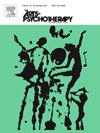Exploring the feasibility of multidisciplinary collaboration in Israeli school inclusion teams: Structures, barriers, and the role of arts therapists
IF 1.5
3区 心理学
Q3 PSYCHOLOGY, CLINICAL
引用次数: 0
Abstract
As schools increasingly adopt holistic approaches to education, multidisciplinary teams have become key to supporting students with disabilities in general education settings. In Israel, the Special Education Law (SEL) enables students with disabilities to receive tailored services and be integrated into the regular education system. These services are provided by multidisciplinary teams (MDTs), composed of professionals from various disciplines who work together to develop and implement individualized education programs (IEPs) that outline the support and interventions for eligible students. Multidisciplinary collaboration involves coordinated teamwork among professionals from diverse fields, requiring clear communication, shared goals and mutual respect. Grounded theory research, based on semi-structured in-depth interviews, was used to examine the perceptions and attitudes of 36 members of multidisciplinary school teams, including arts therapists, working in general education schools in Israel. Five themes emerged from the data: team interaction as the core of collaborative work, implications for multidisciplinary collaboration, features that sustain and strengthen team collaboration, barriers and complexities to promoting and sustaining team collaboration, and the role of arts therapists in multidisciplinary teams. The findings shed new light on the feasibility of multidisciplinary collaboration in Israeli special education school teams that include arts therapists. They confirm previous studies and contribute to the growing literature on interdisciplinary practice in inclusive education.
探索以色列学校包容性团队中多学科合作的可行性:结构、障碍和艺术治疗师的角色
随着学校越来越多地采用整体教育方法,多学科团队已成为在普通教育环境中支持残疾学生的关键。在以色列,《特殊教育法》(SEL)使残疾学生能够获得量身定制的服务,并融入正规教育体系。这些服务由多学科团队(MDTs)提供,由来自不同学科的专业人员组成,他们共同制定和实施个性化教育计划(IEPs),概述对符合条件的学生的支持和干预措施。多学科协作涉及来自不同领域的专业人员之间的协调合作,需要明确的沟通,共同的目标和相互尊重。基于半结构化深度访谈的扎根理论研究,用于检查在以色列普通教育学校工作的36名多学科学校团队成员(包括艺术治疗师)的看法和态度。从数据中出现了五个主题:团队互动作为协作工作的核心,多学科协作的含义,维持和加强团队协作的特征,促进和维持团队协作的障碍和复杂性,以及艺术治疗师在多学科团队中的作用。研究结果揭示了以色列特殊教育学校团队多学科合作的可行性,其中包括艺术治疗师。他们证实了以前的研究,并为全纳教育跨学科实践的文献增长做出了贡献。
本文章由计算机程序翻译,如有差异,请以英文原文为准。
求助全文
约1分钟内获得全文
求助全文
来源期刊

Arts in Psychotherapy
Multiple-
CiteScore
3.20
自引率
11.10%
发文量
66
期刊介绍:
The Arts in Psychotherapy is a dynamic, contemporary journal publishing evidence-based research, expert opinion, theoretical positions, and case material on a wide range of topics intersecting the fields of mental health and creative arts therapies. It is an international peer-reviewed journal publishing 5 issues annually. Papers are welcomed from researchers and practitioners in the fields of art, dance/movement, drama, music, and poetry psychotherapy, as well as expressive and creative arts therapy, neuroscience, psychiatry, education, allied health, and psychology that aim to engage high level theoretical concepts with the rigor of professional practice. The journal welcomes contributions that present new and emergent knowledge about the role of the arts in healthcare, and engage a critical discourse relevant to an international readership that can inform the development of new services and the refinement of existing policies and practices. There is no restriction on research methods and review papers are welcome. From time to time the journal publishes special issues on topics warranting a distinctive focus relevant to the stated goals and scope of the publication.
 求助内容:
求助内容: 应助结果提醒方式:
应助结果提醒方式:


